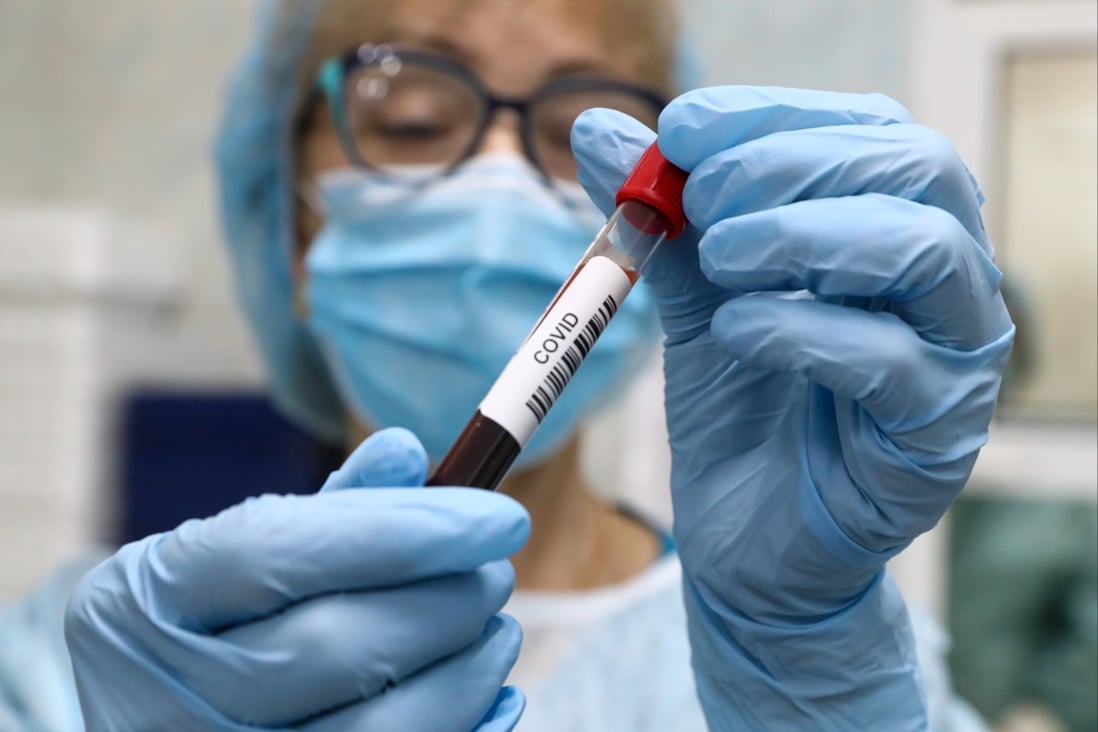
Standing in a taxi queue recently I overheard a middle-aged man say to a woman of similar age ahead of him in line, “I got 650”. Whatever he was referring to, he was clearly pleased with his result and he asked what she got. She smiled and said, “8,500”. His face fell and it took a little more eavesdropping – it’s to be expected if you speak loudly in a cab queue – to realise they were discussing their Covid-19 antibody test results.
In the last month, anyone intending to leave Hong Kong for the summer has rushed to get an antibody test to shorten the mandatory quarantine period upon their return. To qualify, you need to show a result of at least 50 – but as everyone is discovering, there is a vast difference in results. Does a high score earn you bragging rights? Does a low score mean you should be worried?
Writer and editor Lucy Colback did a test at a clinic in Melbourne Plaza in Central, ahead of a trip to see her father in Belgium. Her antibody count of just over 10,000 reassured her that she was well protected, but she still had questions.
“There’s no explanation about what it really means, so for anyone who has only 59 does that mean they aren’t as well protected? That they won’t be protected for long?” she asks. “Some information when you get the test results would be nice.”

It’s human nature that people might want to boast about a high result, but it shows a lack of understanding about what the data means, says Dr David Owens, a founding partner at OT&P Healthcare in Central.
There are some things we do know: a positive antibody test means you’ve either been exposed to Covid-19 or been vaccinated, or both. An antibody, also known as an immunoglobulin, is a large, Y-shaped protein used by the immune system to identify and neutralise foreign objects such as bacteria and viruses. The presence of antibodies is a sign of a previous infection, or that a vaccine is working to protect an individual, but the quantity of these proteins does not directly correlate to the level of immunity.
Hong Kong developers dangle 2nd free flat as vaccination incentive
In general, the higher the antibody test result, the higher the immune response – protection against the coronavirus. A University of Hong Kong study published in July showed that recipients of the German-made BioNTech vaccine had substantially higher levels of antibodies compared with those who received China’s Sinovac shots.
Although there is increasing evidence that higher levels of antibodies generally correspond with stronger and longer-lasting protection against infection, there are many other factors to take into account, Owens says, such as how long since a person was vaccinated, their age and whether they are on medication. The antibody response wanes quite quickly, he explains, so someone with an antibody test result of 10,000 could see that drop to 5,000 after three months.
“I’ve looked at people who have had sequential antibody tests, more than 800 samples, and as with other research published internationally, the antibody levels fall reasonably quickly,” he says.

Other factors include whether you’ve had the coronavirus. Long-time Hong Kong resident Callie Botsford, in her late 50s, had Covid-19 in March 2020 but says she didn’t suffer badly from the virus apart from struggling to walk up the two flights of stairs to her bedroom at home. Around May the same year, she took part in a joint study between OT&P and the University of Hong Kong.“[Afterwards] the doctors were excited that I had such a high antibody count and asked if I’d take part in further trials,” she says.
She had one shot of BioNTech in March this year and when she took an antibody test ahead of a trip to Europe in the summer her result was over 40,000 – the test’s upper limit.
Owens also points out that the body has a number of different immunity pathways and antibodies are only one – the first line of defence.
“In some ways, just to purely focus on an antibody test, whether positive or negative or whatever, the number doesn’t tell you the whole story. Apart from antibodies we also have T-cell response and that has the capacity to produce against infection even when the antibodies have gone,” he says.
A March paper in Nature Communications acknowledged that T-cell immunity is important for recovery from Covid-19 and provides heightened immunity against reinfection. The study sought to learn more about the memory T cells of Covid-19 patients and their close contacts that remain long after an infection has been eliminated, particularly their versatility and potential, which may be important for host protection.
“Individuals exhibit a wide variation in … immune responses during the primary viral infection, with some patients displaying balanced viral-specific B-cell and T-cell immunity, whereas others rely either on a higher level of activation of neutralising antibodies or on a stronger T-cell response to fight off the virus,” the report stated.
Owens says that the immunity of coronaviruses is very complex, and some people have T-cell immunity even though they have no antibodies. “What we can say is that vaccines which engender a higher antibody response have also shown to be the most effective in population studies.”

So if you did score high on your antibody test you can be happy with your immune response, but more important is that you have a barrier against the coronavirus. And if your score isn’t as high as someone else’s, fear not – they may have taken the test two months after being vaccinated, while you took it three months after. The key is that you are well protected.
Catherine Platt, director of the Hong Kong International Literary Festival, scored a result of 6,543 ahead of her trip to see her family in the US.
“I was pleased to confirm that I have strong antibodies and a good immune response,” she says. “It makes me feel more confident about travel and being in public places, in the knowledge that I can fight the virus if I do come in contact [with it]. For me, it also proves the effectiveness of the Covid-19 vaccine.”








